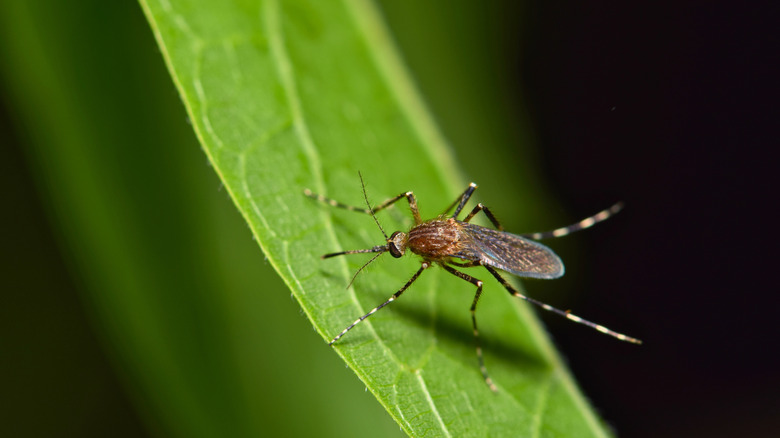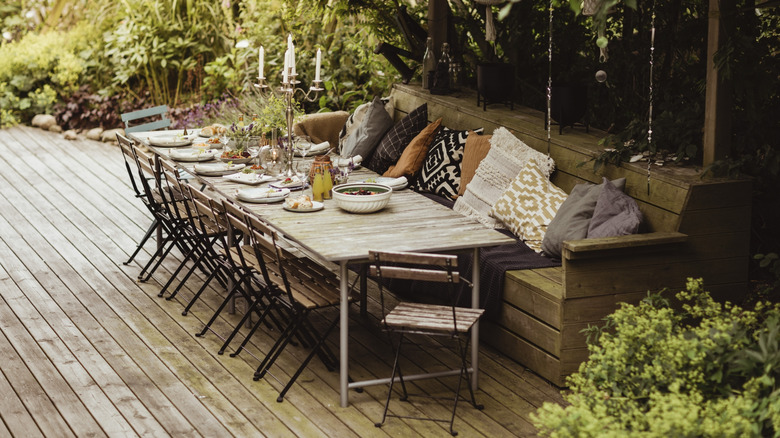The Common Landscaping Mistake That Could Be Inviting Mosquitoes Into Your Yard
The deck where you barbecue delicious meals or settle down with the latest bestseller isn't so pleasant when mosquitos are whining in your ears or landing on your skin for a snack. When the essential oil candles, bug zappers, and liberal applications of insect repellents aren't making a dent in their population, it's time to figure out what part of your landscape is providing safe harbor for these bothersome bugs. It may seem counterintuitive to check under the deck itself first, but if you've got a tangle of weeds or a decomposing pile of yard waste hiding under it, your mosquito problem could be originating there.
Aside from the irritating buzz, the bite, and the subsequent itchy bump, mosquitos are reviled as carriers of diseases like malaria and zika. People who are allergic to the mosquito's saliva can suffer severe reactions, and dogs and horses can be infected with heartworms or equine encephalitis. A single benefit researchers have found is that some mosquito larvae eat the larvae of other mosquitos, which doesn't translate into much relief for humans who want to use their deck. Keeping the ground beneath your deck free of water and organic material that might provide habitat for mosquitos could solve the problem, or at least lessen it. Create your mosquito-free zone by first clearing out the area under the deck.
Keeping mosquitos from flourishing under your deck
Mosquitos require water to complete their life cycle, so eliminating standing water in your landscape is usually the first step in controlling these insects. Even if you don't have standing water under your deck from storms or from a collection of old buckets slowly filling with rainwater, the vegetation under the deck may stay moist enough to attract mosquitos. If the area under your deck collects water, grade it so that water runs off. Even the corrugated black downspout extensions you use to save your home's foundation from water damage are breeding grounds for mosquitos. Move them away from the deck and cover the openings with fine mesh to let water drain out and prevent mosquitos from getting in.
One of the best long-term solutions for mosquito (and weed) control under the deck is to cover the ground with decorative rock, gravel, or cypress mulch. Landscape plastic under the rock adds a layer of weed control. If you'd prefer something green, consider a ground cover that can help deter pests and also thrive the shade, like citronella grass (Cymbopogon nardus). Generally, it's the oil in plants like citronella that keeps mosquitos at bay, so you need to crush the grass for it to be effective. You might also consider adding plants to your yard to attract birds — martins, swallows, and songbirds are just a few examples of species that enjoy snacking on these pesky insects. Commercial pesticide sprays and foggers work for a while, but need to be reapplied after a few weeks. Pesticides also the kill beneficial insects a healthy landscape needs, so they should be your last resort.

